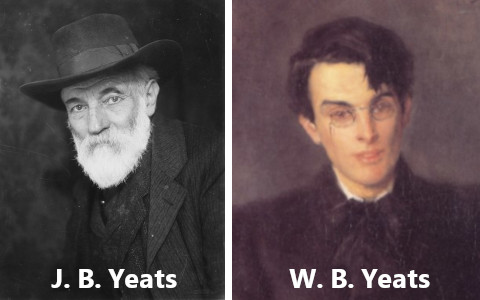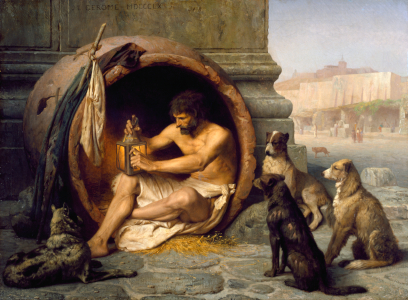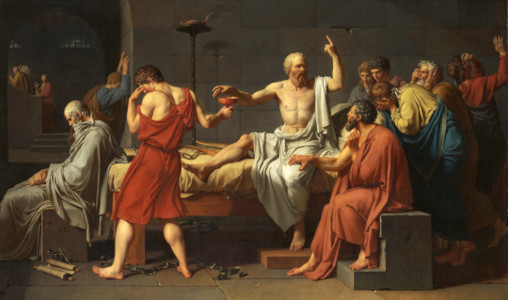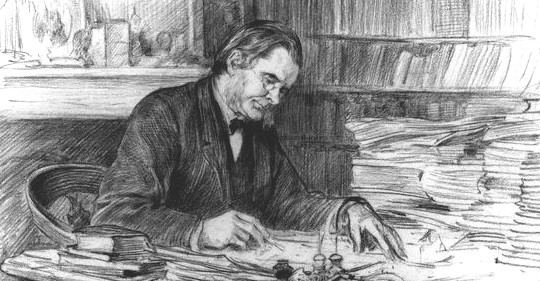William Butler Yeats? John Butler Yeats? Carl Sandburg? Ezra Pound? Apocryphal?

Question for Quote Investigator: A reader who requests clarification for a poem that is opaque is sometimes met with a rejoinder of this type: If the lines can be explained then the work is not poetry.
This notion has been attributed to the Nobel Prize-winning Irish poet William Butler Yeats and the U.S. poet and biographer Carl Sandburg. Interestingly, it has also been credited to John Butler Yeats, a painter who was the father of W. B. Yeats. Would you please explore this topic?
Reply from Quote Investigator: In 1917 a collection titled “Passages from the Letters of John Butler Yeats” was published in Ireland. The book’s editor, Ezra Pound, stated that he selected the excerpts from notes sent by J. B. Yeats to his son W. B. Yeats between 1911 and 1916. The following remark about poetry appeared in a message dated September 6, 1915. Boldface added to excerpts by QI:1
I take up some lines of poetry and say I will explain them and make the effort, always to end in giving it up. No explanation is possible. There is nothing to be done except to read out with friendliest voice the lines I started to make plain. What can be explained is not poetry. It is when the powers of explanation desert him that the poet writes verse.
Thus, John Butler Yeats deserves credit for this quotation and not William Butler Yeats. Two mechanisms help to explain this misattribution:
(1) Attributions sometimes shift between people with similar names.
(2) Attributions sometimes shift from a person of lower prominence to a person of greater prominence.
Below are additional selected citations in chronological order.
Continue reading “Quote Origin: What Can Be Explained Is Not Poetry”





